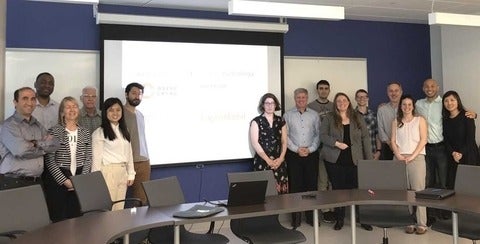Ecohydrology Group kicks off new NSERC CRD project with Imperial Oil Ltd.
The Ecohydrology Research Group is thrilled to announce the successful funding of $630,769 for a new Collaborative Research and Development project on “Elucidating the biogeochemical processes controlling natural source zone depletion (NSZD) of petroleum hydrocarbons in contaminated soils under dynamic redox conditions”.
